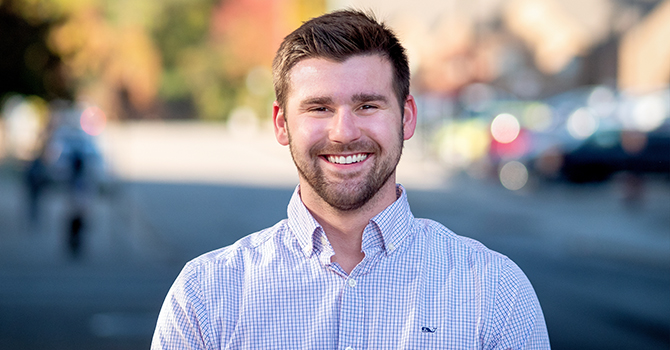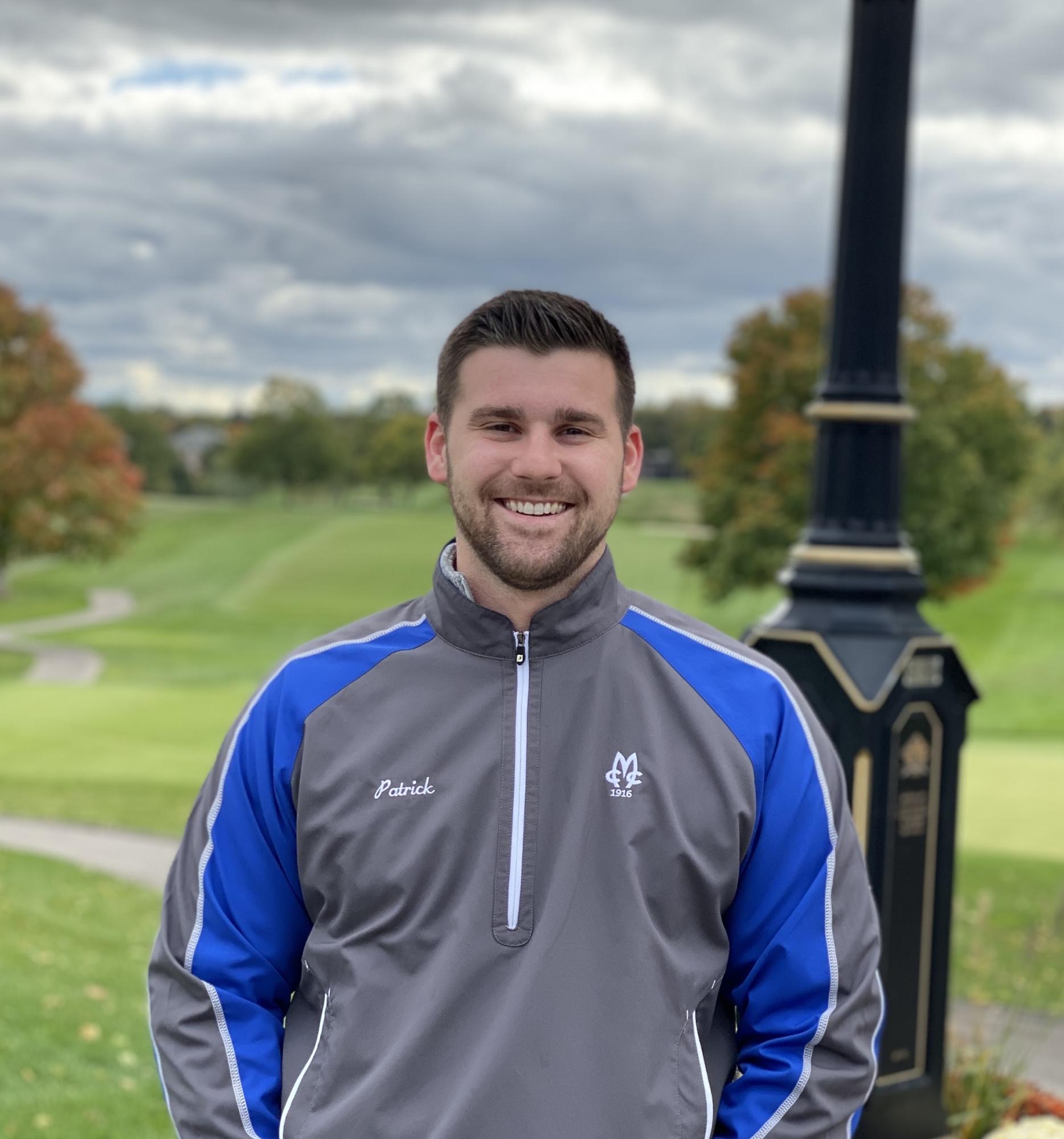Pursuing Public Health through Toxicology

Patrick O’Dowd
Master’s Student in Environmental Health Sciences, Gerald Keeler Fund Scholar
Medicine is a profession that runs in the family. My mother is a physician, my brother is a medical student, and many extended family members are nurses. All of these people, currently in practice, have expressed how great it would be to have a greater ability to help more than one person at a time. Public health and my work in toxicology allows me the opportunity to pursue a career in medicine, but also the ability to help a larger population of people.
The frontier of modern medicine—I think—lies in the evolution of public health practice. Public health has so many interesting aspects to explore. As I alluded to before, I discovered that an education in public health would allow me to help a vast number of people. Toxicology is hugely important in the frontier of modern medicine. Without data from toxicology, we would never know safe dosing levels, what chemicals are harmful to specific systems of the body and at what levels, how toxicants (or medicines) are working within our bodies, and so much more.
Toxicology also extends into various specialties, including medical toxicology such working in poison control centers or emergency departments or forensic toxicology which looks at toxicants within a system, either for detection (i.e. drug test) or for quantification (i.e. blood alcohol level). So, toxicology is not only on the frontier of medicine and our evolving pharmaceutical market, but also in so many other disciplines, too.
Without data from toxicology, we would never know safe dosing levels, what chemicals are harmful to specific systems of the body and at what levels, how toxicants (or medicines) are working within our bodies, and so much more.
In general, we know the cost of medical care is on the rise. Public health is focused on preventing illness before it becomes an issue requiring medical attention. Using data from toxicologic studies, we can work to limit or stop exposure to dangerous chemicals, drugs, and whatever else can be harmful to us. Toxicology is a branch of public health that can do just that—Identify and prevent illness.
I was immediately drawn to the clinical aspect of toxicology. My undergraduate degree is in forensic science, but during an undergrad research program in Emergency Medicine, I had a mentor that was a clinical toxicologist. The program—and my mentor, Dr. Daniel Keyes, M.D.—really helped me further understand how having knowledge in this discipline can make a fast-paced decision a possibility in emergency medicine. In the ER, it is quite apparent that fast, accurate decisions are immensely beneficial to all involved, but especially the patients.
Even though my current research focusing on bisphenol A (BPA) exposure and modulation of the epigenome is not clinical, it has been beyond beneficial in broadening my horizons to an area I didn’t know I was interested in. With this knowledge, I have the means to not only treat patients needing a toxicologic assessment (provided that I go to medical school), but also perform laboratory based research on toxicology topics of burgeoning interest to the medical community. This is a wider breadth of practice than I would have originally gained, had I been focused solely on clinical and not open to other sub-disciplines.
Eventually, I plan on going to medical school, and maybe a PhD before that. With a background and education in toxicology, I hope to specialize in emergency medicine, where I can use my knowledge to help make very quick, accurate decisions in the emergency department.
In many cases, medical departments with no toxicology expert have to call the Poison Control Center and attempt to dictate what the patient is experiencing. The person on the phone must make their best attempt to identify the substance and make a treatment recommendation based on an over-the-phone description.
Think of it this way. Have you ever tried to describe something you’re seeing/experiencing to someone not in the room and your description has been misinterpreted? In the case of a medical situation, having someone that can see first-hand what the patient is experiencing will allow for less errors, faster decisions, and better patient outcomes.
For incoming students: come out of your comfort zones when it comes to your studies. You can truly widen your breadth of knowledge by studying under experts in a lot of different areas. Before this program, I wanted to pick a clinical toxicology research project. I was urged to look more at a wet lab based project, and I have learned a tremendous amount of new knowledge that will help me with anything I do. Not to mention, I have really honed in my pipetting skills.
More about Patrick
 When he's not on campus, there is a good chance Patrick can be found on a golf course.
In addition to studying in the Environmental Health Sciences department, Patrick is
an avid golfer and works as the Golf Services Manager of one of the top ranked country
clubs in the state.
When he's not on campus, there is a good chance Patrick can be found on a golf course.
In addition to studying in the Environmental Health Sciences department, Patrick is
an avid golfer and works as the Golf Services Manager of one of the top ranked country
clubs in the state.
“I wouldn't be able to enjoy a job in the golf industry if I were not an avid golfer.
Keeping up with your interests outside of academics is a great way to not get too
stressed out as a graduate student.”
Prospective students interested in pursuing a public health degree can sign up to chat with admissions ambassadors like Patrick to learn more about a public health education, life as a student at Michigan Public Health, and more.
